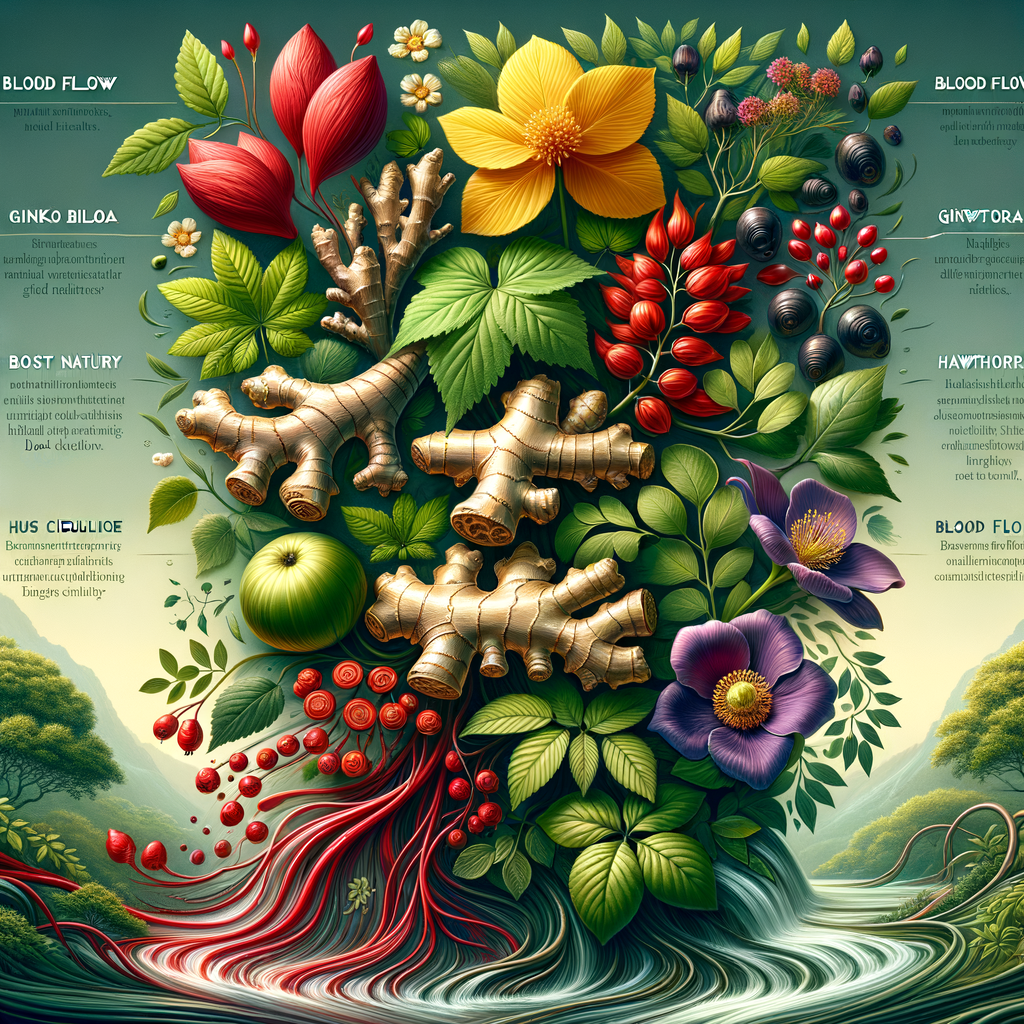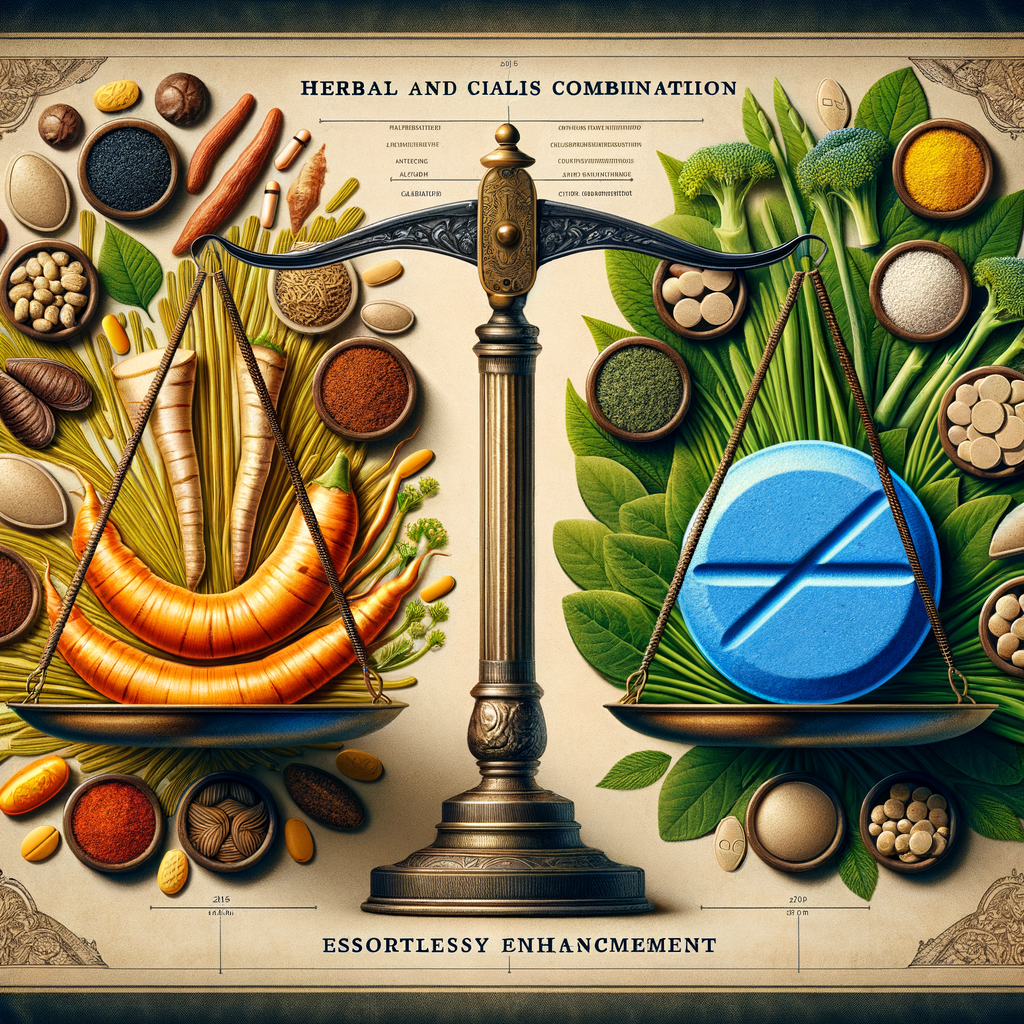Introduction
When it comes to maintaining overall health and well-being, ensuring optimal blood flow is crucial. Proper circulation is essential for delivering oxygen and vital nutrients throughout the body, supporting various bodily functions. While there are many ways to promote healthy blood flow, incorporating natural blood flow herbs into your daily routine can be a beneficial and sustainable solution. In this blog post, we will explore the power of natural blood flow herbs and how they can help boost circulation in a safe and effective manner.
Understanding the Importance of Blood Flow
Before we delve into the specific herbs that can help improve blood flow, let’s first understand why blood circulation is so vital. The cardiovascular system is responsible for transporting blood, carrying oxygen and nutrients to cells while removing waste products. Poor circulation can lead to a range of health issues, including numbness, cold extremities, fatigue, and even more severe conditions like heart disease and stroke. By taking proactive steps to enhance blood flow naturally, you can promote better overall health and reduce the risk of various cardiovascular complications.
Transitional Phrase: “Now that we’ve covered the importance of blood flow, let’s explore some powerful natural herbs that can help support and boost circulation.”
Ginkgo Biloba: Enhancing Circulation and Brain Function
One of the most well-known natural blood flow herbs is Ginkgo Biloba, derived from one of the oldest living tree species on the planet. Ginkgo Biloba is renowned for its ability to improve circulation by dilating blood vessels and reducing inflammation. Additionally, this potent herb is known for its cognitive-enhancing properties, making it a popular choice for those looking to support brain function and memory. By incorporating Ginkgo Biloba into your daily regimen, you can enjoy improved circulation throughout your body, leading to better overall health and vitality.
Cayenne Pepper: Spice Up Your Circulation
Cayenne pepper is not only a popular culinary spice but also a powerful natural remedy for promoting healthy blood flow. The active compound in cayenne pepper, capsaicin, helps stimulate circulation by dilating blood vessels and increasing blood flow to all parts of the body. Additionally, cayenne pepper is known for its anti-inflammatory properties, which can further support cardiovascular health and reduce the risk of conditions like high blood pressure. Adding a dash of cayenne pepper to your meals or taking it in supplement form can be an excellent way to spice up your circulation naturally.
Transitional Phrase: “Now that we’ve explored Ginkgo Biloba and cayenne pepper, let’s take a look at some other natural blood flow herbs that can help boost circulation.”
Garlic: Nature’s Circulation Booster
Garlic has been used for centuries as a natural remedy for a wide range of health conditions, including poor circulation. The active compound in garlic, allicin, helps relax blood vessels, promote healthy blood pressure, and improve overall circulation. In addition to its cardiovascular benefits, garlic also possesses potent antimicrobial and immune-boosting properties, making it a versatile herb for supporting overall health and well-being. Whether consumed fresh, in supplement form, or added to your favorite dishes, garlic is an excellent choice for those looking to enhance blood flow naturally.
Hawthorn Berry: Supporting Heart Health and Circulation
Hawthorn berry is another powerful herb known for its ability to support heart health and circulation. This tiny red fruit contains antioxidants and flavonoids that help dilate blood vessels, improve blood flow, and strengthen the heart muscle. By incorporating hawthorn berry into your daily routine, you can promote healthy circulation, reduce the risk of heart disease, and support overall cardiovascular function. Whether consumed as a tea, tincture, or supplement, hawthorn berry is a natural blood flow herb that can benefit your heart and circulatory system.
Conclusion
In conclusion, natural blood flow herbs offer a safe and effective way to support healthy circulation and overall well-being. From Ginkgo Biloba and cayenne pepper to garlic and hawthorn berry, incorporating these powerful herbs into your daily routine can help boost blood flow, reduce inflammation, and support cardiovascular health. By taking a proactive approach to enhancing circulation naturally, you can enjoy improved energy levels, better cognitive function, and a reduced risk of cardiovascular complications. Remember to consult with a healthcare professional before starting any new herbal regimen, especially if you have underlying health conditions or are taking medications.
Frequently Asked Questions (FAQs)
1. Can natural blood flow herbs interact with medications I’m currently taking?
It is essential to consult with a healthcare provider before adding new herbs to your routine, especially if you are taking medications that may interact with them.
2. Are there any side effects associated with using natural blood flow herbs?
While natural herbs are generally considered safe, some individuals may experience side effects or allergic reactions. It’s best to start with a small dose and monitor your body’s response.
3. How long does it take to see results from using natural blood flow herbs?
The timeframe for experiencing the benefits of natural herbs can vary depending on individual factors such as metabolism, dosage, and overall health. Consistent use over time is key.
4. Can I combine multiple natural blood flow herbs for enhanced benefits?
Combining different herbs may enhance their synergistic effects, but it’s essential to research potential interactions and consult with a healthcare professional before doing so.
5. Are natural blood flow herbs safe for pregnant or nursing women?
Pregnant or nursing women should exercise caution when using natural herbs and consult with a healthcare provider to ensure the safety of any herbal remedies during this time.
6. Can children use natural blood flow herbs to support circulation?
Children should only use natural herbs under the guidance of a healthcare professional to ensure appropriate dosage and safety.
7. Are natural blood flow herbs a substitute for medical treatment for cardiovascular conditions?
Natural blood flow herbs can complement medical treatment but should not be used as a replacement for prescribed medications or interventions for cardiovascular conditions.
8. Do natural blood flow herbs have any contraindications for specific health conditions?
Certain health conditions may contraindicate the use of certain herbs, so it’s crucial to disclose your medical history and current health status to your healthcare provider.
9. What is the best way to incorporate natural blood flow herbs into my daily routine?
Depending on personal preferences and needs, natural blood flow herbs can be consumed as teas, tinctures, supplements, or added to meals in culinary forms.
10. How can I ensure the quality and authenticity of natural blood flow herbs I purchase?
To ensure the quality and authenticity of natural herbs, opt for reputable sources, look for organic certifications, and research the company’s manufacturing practices.
References
1. National Center for Complementary and Integrative Health. (2021). Ginkgo. https://www.nccih.nih.gov/health/ginkgo
2. Balch, P. A., & Balch, J. F. (2010). Prescription for Nutritional Healing: A Practical A-Z Reference to Drug-Free Remedies Using Vitamins, Minerals, Herbs & Food Supplements.
3. University of Maryland Medical Center. (2021). Garlic. https://www.umm.edu/health/medical/altmed/herb/garlic
4. American Heart Association. (2021). Hawthorn. https://www.heart.org/en/news/2018/07/19/hawthorn-herb-helps-keep-heart-healthy



